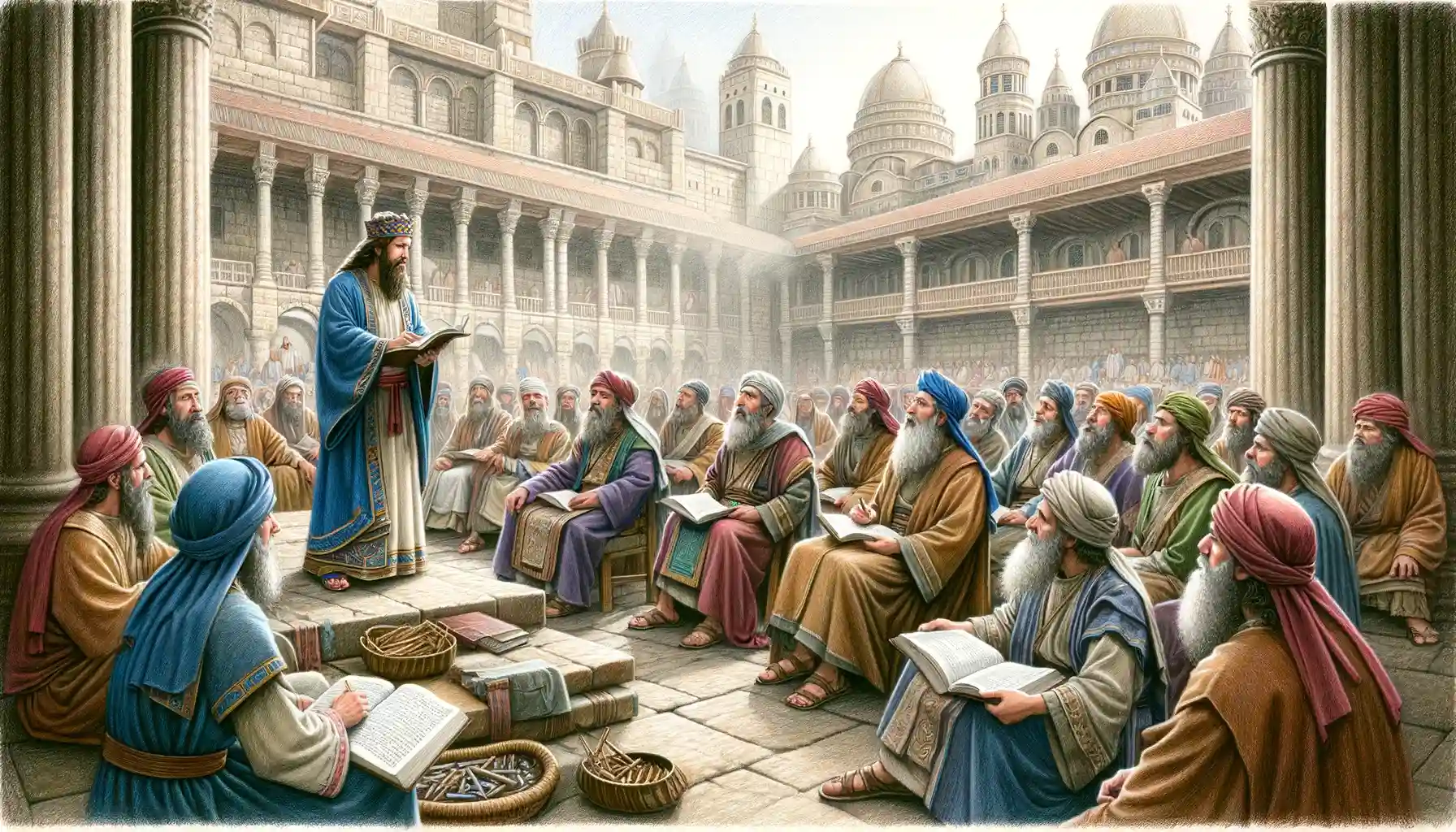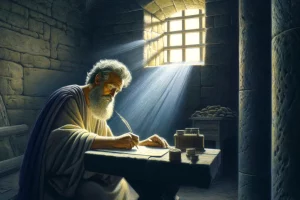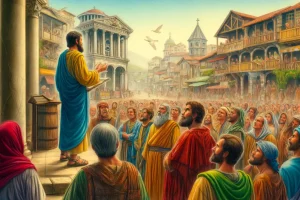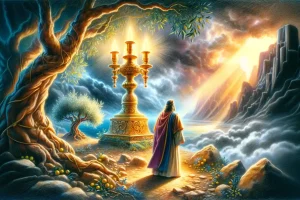
The Book of 1 Chronicles
The Book of 1 Chronicles is a key historical and theological text in the Hebrew Bible and the Christian Old Testament, focusing on the genealogical history of the Israelite people and the reign of King David. Here are some concise key facts about 1 Chronicles:
- Title and Position: 1 Chronicles is part of the “Chronicles” which includes 1 and 2 Chronicles. It is part of the Writings (Ketuvim) in the Hebrew Bible and follows 2 Kings in the Christian Old Testament.
- Authorship and Date: Traditionally attributed to Ezra the scribe, 1 Chronicles was likely composed during the late 5th century BC, post-exilic period.
- Structure and Content: The book can be broadly divided into two main sections:
- Genealogies and Lists (Chapters 1-9): Opens with extensive genealogies from Adam to the descendants of the tribes of Israel, emphasizing the continuity of God’s people from creation through the Exile.
- Reign of David (Chapters 10-29): Focuses on David’s reign, omitting his failures and emphasizing his successes, particularly his preparations for the building of the Temple, his military and administrative achievements, and his efforts to organize temple worship.
- Main Themes:
- Covenant and Temple: Highlights the Davidic Covenant and David’s preparations for the temple, underscoring the temple’s central role in Israel’s religious life.
- Continuity and Identity: Through genealogies and the recounting of history, Chronicles reaffirms the identity and continuity of the Israelite community, especially important for the post-exilic audience.
- Worship and Liturgy: Emphasizes proper worship and the Levites’ roles, reflecting a liturgical interest characteristic of the post-exilic period.
- Theological Significance:
- Reinforces the idea of Israel’s chosen status and God’s ongoing plan through David’s lineage and the temple.
- Chronicles serves to link the past histories of Israel to the community’s present circumstances, encouraging faithfulness to God and adherence to the worship practices that define them as a people.
- Modern Relevance: Encourages reflection on community heritage and identity, the importance of faithful worship, and the roles of leaders in guiding religious and national life.
The Book of 1 Chronicles is an important part of the Hebrew Bible and the Christian Old Testament, providing a retelling of Israel’s history with a particular focus on the Southern Kingdom of Judah and its covenantal lineage through David. This book was written in the post-exilic period and serves as both a historical recount and a theological commentary. Here’s a detailed analysis of 1 Chronicles, exploring its structure, content, major themes, and theological implications.
Structure and Content
1. Genealogies (Chapters 1-9):
- 1 Chronicles opens with nine chapters of extensive genealogies, tracing the lineage from Adam through the patriarchs, the tribes of Israel, and the residents of Jerusalem up to the return from exile. This section establishes the continuity and legitimacy of the post-exilic community as true heirs of Israel’s promises.
2. Reign of David (Chapters 10-29):
- Transition from Saul to David (Chapter 10): Briefly recounts the end of Saul’s reign to set the stage for David’s ascension.
- David’s Kingship (Chapters 11-21): Details David’s military successes, his anointing as king over all Israel, the bringing of the Ark of the Covenant to Jerusalem, and various other achievements. Notably, his sins (such as the affair with Bathsheba) are omitted, focusing instead on his role in planning the Temple and organizing Israel’s religious life.
- Preparations for the Temple (Chapters 22-29): Emphasizes David’s preparations for the construction of the Temple, including his collection of materials, organization of the Levites, priests, and other officials, and his final exhortations and blessings to the people and his son Solomon.
Major Themes
1. Legitimacy and Continuity:
- The genealogies and the focus on David’s dynasty underscore the theme of legitimacy, particularly important for the post-exilic community seeking to reestablish its identity and rightful heritage.
2. The Temple and Worship:
- The preparations for the building of the Temple and the organization of its services highlight the centrality of worship in Israel’s community life. This reflects the Chronicler’s concern with proper worship as a means of reconstituting the people’s religious identity.
3. Leadership and Covenant:
- David is portrayed as the ideal leader whose reign is characterized by faithfulness to God, in contrast to Saul. His efforts to establish a centralized place of worship and his covenant relationship with God serve as a model for kingship.
4. Role of the Levites:
- The detailed organization of the Levitical duties represents a shift from the earlier historical books, emphasizing their liturgical functions over their earlier more secular roles, aligning with the post-exilic community’s religious focus.
Theological Significance
1 Chronicles offers a theological interpretation of Israel’s history to address the concerns of a community returning from exile. By highlighting the Davidic covenant and the preparations for the Temple, it reinforces the community’s understanding of itself as a continuation of God’s chosen people, with a renewed emphasis on purity in worship and leadership.
Conclusion
1 Chronicles not only serves as a historical document but also as a theological treatise that reassesses and redefines the historical narrative to meet the needs of a later audience. It underscores themes of divine promise, leadership, worship, and community, which resonate with the post-exilic Jews’ endeavor to reclaim their identity and restore their communal worship practices. This book thus functions as a bridge between Israel’s storied past and its present reality, offering hope and direction for the future.
Tag:Ark of the Covenant, biblical liturgy, Book of 1 Chronicles, Chronicles, Covenant, David, divine promises, Genealogies, historical narrative, Israelite heritage, Jerusalem, King Saul, kingdom of Judah, Leadership, Levites, Old Testament, post-exilic, priests, religious reform, royal lineage, sacred history, Solomon, Temple preparations, tribal genealogy, worship



